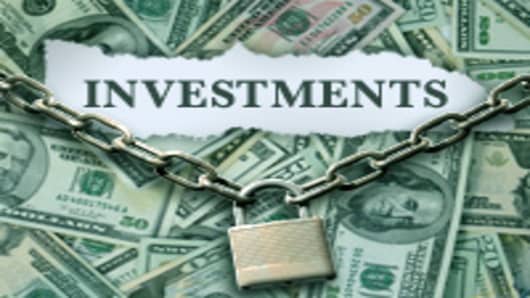Making end-of-the-year tax decisions is always a tricky business for investors, but even more so this year considering the lack of certainty over levies on dividends, capital gains and ordinary income.
Those are the leading categories getting attention as the lame-duck Congress ponders whether to extend tax breaks granted over the past decade.
Investors confronted with decisions over where to take losses and secure gains now must weigh whether those tax breaks will be extended and what their strategy should be going forward.
Prevailing wisdom is that the tax breaks set to sunset at the end of 2010 will live on in some form. Regardless, investors likely will take a "grin and bear it" attitude regardless of which direction Congress chooses, says Sam Stovall, chief market strategist at Standard & Poor's.
"Maybe we see a little bit of year-end tax selling, but I don't think it's really going to be all that much," he says. "Most people have sort of said, 'I'm going to live with the higher tax rates because where else would you put the money?'"
The tax breaks likely to be most at risk are those for earners with incomes over $250,000. They are part of an across-the-board break given in 2001.
But they aren't the only ones in question. Taxes on capital gains, dividends and estates also would likely rise to 20 percent for top earners, while dividends would revert to normal income tax rates. Both capital gains and dividends are currently taxed at a 15 percent rate.
Critics of letting the taxes expire say doing so will send the US back into recession, while the other side argues that not raising taxes is irresponsible considering pressures from the national deficit.
"It will have a major impact if the tax cuts aren't extended," says Andre Julian, senior market strategist at OpVest Wealth Management in Irvine, Calif. "The market swings between exuberance and fear, and it seems that when there is a big shift in the landscape and a big shift in the way investments are treated, you have that psychological reaction."
While advising investors not to panic should some rates be raised, Julian advises action.
Switching from a conventional IRA to a Roth IRAis one way investors can protect future gains from taxation. That's because gains in a Roth IRA aren't taxed, though converting from a regular IRA to a Roth usually involves an upfront tax hit.
Other strategies discussed by advisers include looking to funds with a longer investment horizon—short-term gains would be taxed at a higher level than long-term—and checking with fund managers now to see how much income was realized from the six-month run on equity mutual fund redemptions.
Estate taxes also will be changed, making heirs pay for gains realized on inheritance. The estate tax was repealed this year, but will return next year at rates of up to 55 percent.
"Investors have to be very leery," says Tom McCabe, a certified public accountant and chief operating officer at Prestige Wealth Management in Flemington, N.J. "You had very large outflows from the stock funds from May through (October), so there may be some pretty significant capital gains paid out from some of these funds. As individual investors you have to be on top of what's going to be paid so you have the losses to match up."
At the same time, little is expected to come from any movement in the dividends rate.
Even if it is increased, investors are likely to tolerate it so long as the dividend remains solid, regardless of whether rates or inflation move up and eat into capital appreciation.
"The average investor doesn't really compare themselves to the (Standard & Poor's 500) too much. They basically just say, 'Don't lose me any money,'" Stovall says. "If 45 percent of the total return of the S&P 500 since 1926 has come from reinvested dividends, I think a nice dividend payment despite the tax rate would still be favored by investors."
Those worried about what will happen with rates—both tax rates and a likely move higher in interest—should start moving now to tax-sheltered investments for safety, and high-quality short-duration corporate bonds for capital appreciation, says Marilyn Cohen, CEO at Envision Capital Management in Los Angeles.
"As a betting person I would bet that we get the extension. Having said that, it doesn't mean you sit around like a piece of lead doing nothing," she says. "Now is the time when you can get out with your skin...Be proactive, shorten your durations, harvest your gains. Most people are sitting on a ton of capital gains from stock sales. Offset those gains tax-free."
Indeed, even while investors may not want to get out of tax-impacted positions altogether, it could be a good time to at least take some gains in preparation for what may lie ahead.
"The exit strategy is very important. If they don't have good gains it might be time to at least reallocate to get their financial pie chart back into balance," says Peter D'Arruda, founding principal at Capital Financial Advisory Group in Cary, N.C. "If they do have good gains, it may be a good time to at least minimize some positions, locking in the gains while locking in their lower tax rate. It's a double-play in the right direction."
The good news, at least for now, is that investors probably will need to only tweak their normal thought processes, as no major tax increases appear on the horizon barring a major political breakdown in Washington.
"Congress is pretty famous for kicking the can down the road," D'Arruda says. "I'd be amazed if they didn't kick this can down the road as well."



